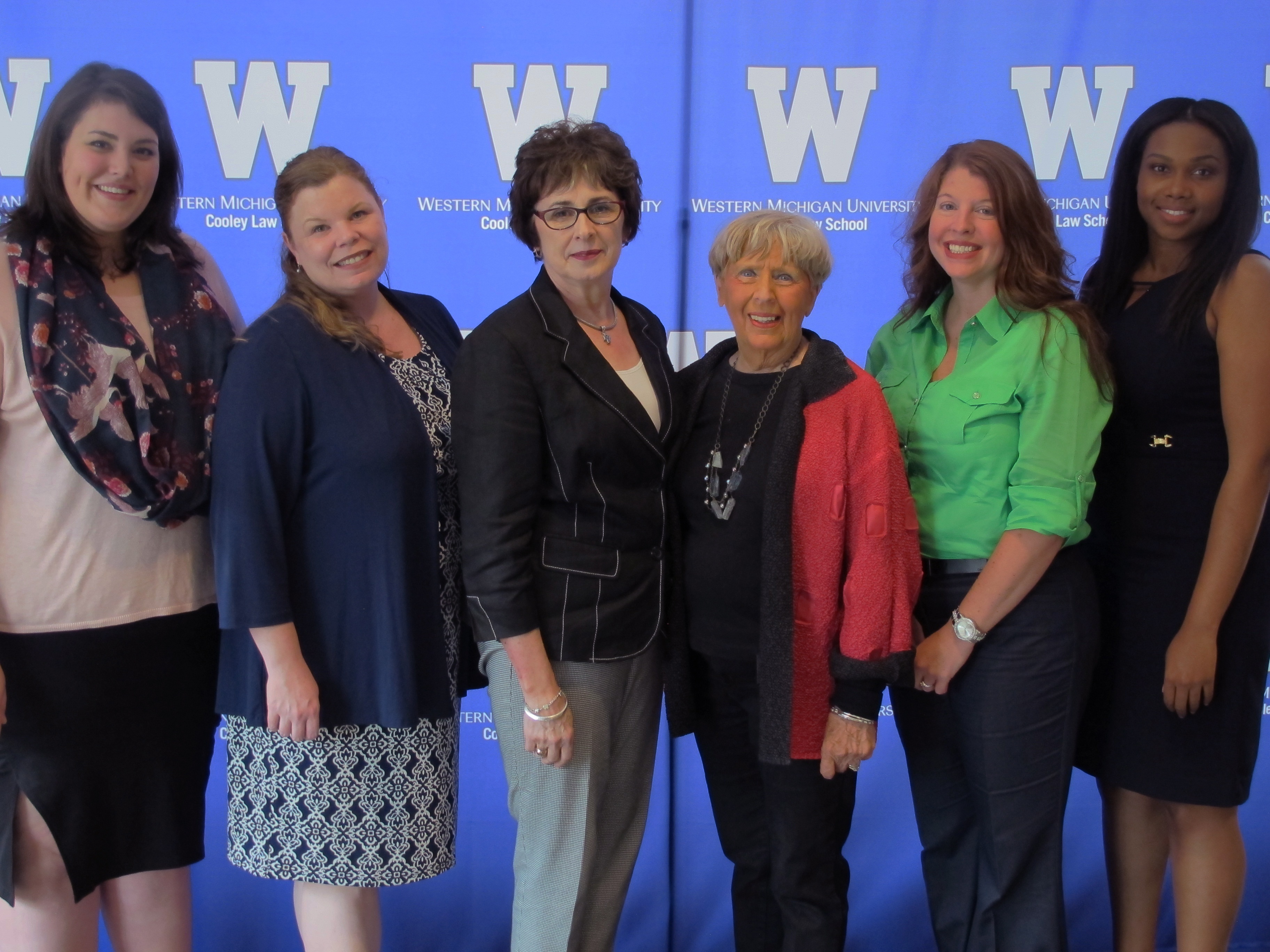Force. Fear. Coercion. How human trafficking victims fall prey and how to stop modern day slavery.

This blog was originally published on June 23, 2015.
There are plenty of myths and misconceptions about human trafficking. Some believe that human trafficking does not occur in the United States. Others think that human trafficking victims are only foreign born, or that they are always poor. Some have the misconception that human trafficking is only sex trafficking. Nothing could be further from the truth.
Cooley law students listened to experts on the topic of human trafficking during an expert panel discussion called “The Slave Next Door: Stop Human Trafficking Today,” held on Thursday, June 18. It was hosted by Cooley’s Student Bar Association (SBA) and the American Bar Association Law Student Division (ABA/LSD).
Experts from The State of Michigan Human Trafficking Task Force convened at the law school to shed light on the serious crime of human trafficking and to describe how victims fall prey at the entry level, and how control — physical and/or emotional — through force, fear, or coercion, keeps individuals chained to what experts call modern day slavery. The task force is made up of over 90 member agencies committed to a collaborative effort to identify and rescue victims, prosecute offenders, restore victims, and educate those in Michigan of human trafficking, in both sexual and labor exploitation.
- past sexual abuse
- bad family past
- feelings of low self-worth
- feelings that this is the only way to save the relationship
These tactics, and many others, are tools that traffickers use to exercise control over victims.
“As a law student, opportunities and events like this one are so important in understanding the complex issues that we will be faces with as practicing attorneys,” stated Cooley ABA/LSD President April Alleman. “Having the ABA/LSD and the SBA able to get expert speakers on Human Trafficking leads to so much awareness in our school, which leads to more awareness in the community. I am so thankful that I get to be a part of it.”
Experts say that education and awareness are key to stopping human trafficking. If people understand and are aware of human trafficking, it can go a long way in decreasing the demand for human trafficking. Go to The U.S. Department of State site to find out 20 Ways You Can Help Fight Human Trafficking.
The distinguished panel of experts for “The Slave Next Door: Stop Human Trafficking Today” event included:
- Jane White: Director of Human Trafficking Task Force at MSU
- Senator Judy Emmons: Works at the grass roots level with real-life survivors to craft legislation aimed at stopping this unthinkable crime
- Kelly Carter: Assistant Attorney General, Senior Attorney Specialist, prosecuting human trafficking
- Detective Amber Kinney- Hinohosa: Works and specializes in cases involving human trafficking and as a witness in multiple trials

